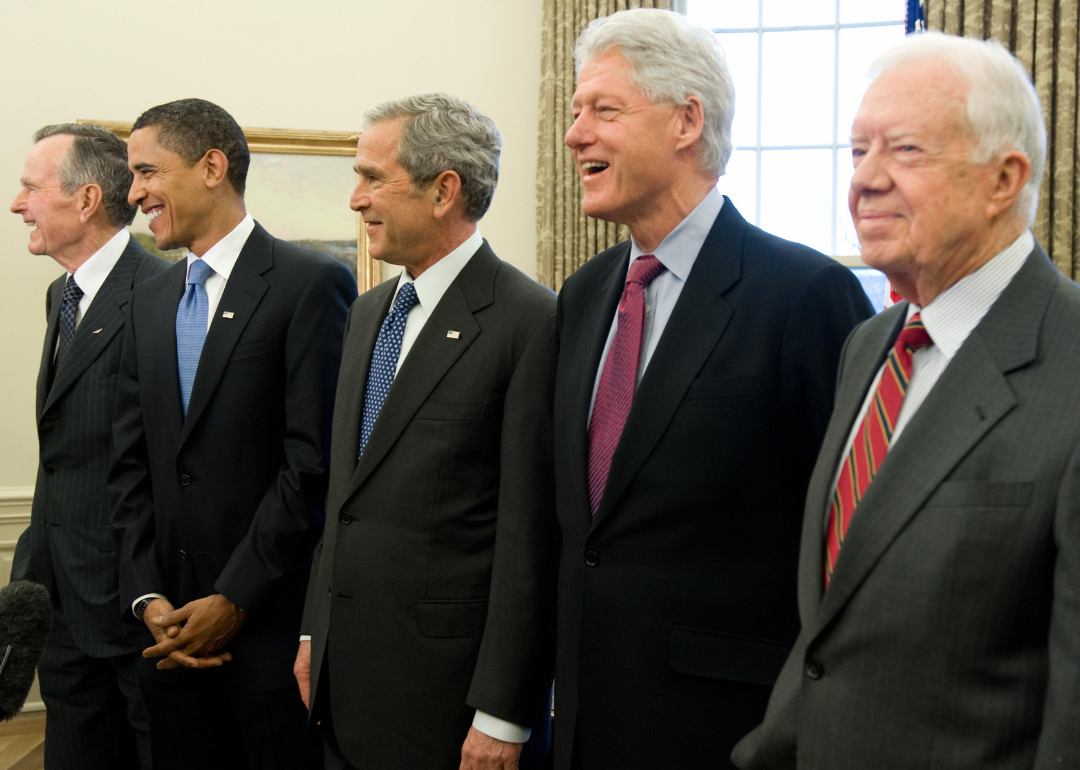
Ranking presidents over the past 8 decades by their final approval rating
Ranking presidents over the past 8 decades by their final approval rating
Presidential approval ratings are constantly monitored—from the inauguration and transfer of power between administrations to each chief executive's last day in office—in order to gauge popularity. Job approval ratings are a simple metric on how Americans judge the commander-in-chief at any given time and approval numbers can vary widely throughout a president's term. For example, as of the end of July 2024, President Biden's approval rating was 43% for his job overall, according to a Gallup poll. But his monthly approval ratings tell a slightly different story. Shortly before he ended his presidential reelection bid on July 21, that number had dropped to 36%, the lowest of his presidency to date.
Biden's July 2024 approval rating isn't far off from that of many of his predecessors at the same point in their presidencies: Donald Trump saw a 41% approval rating in July of the fourth year of his term, while Barack Obama was slightly higher at 46%.
To rank U.S. presidents based on their final approval ratings, Stacker used data from The American Presidency Project compiled by Gallup over the past eight decades. In cases of a tie, the lower disapproval rating was used. Presidents who died while in office are excluded from the rankings.
It's worth noting that polling is not an exact science, and political analysts look at different polls to determine an accurate representation of a politician's popularity. "As a general rule, you should never go off of just one poll … one poll might have a certain methodology used that differs a bit from another one," FiveThirtyEight election analyst Geoffrey Skelley told ABC News.
Keep reading to find out which presidents, from Harry Truman to Donald Trump, left office with the lowest approval ratings.
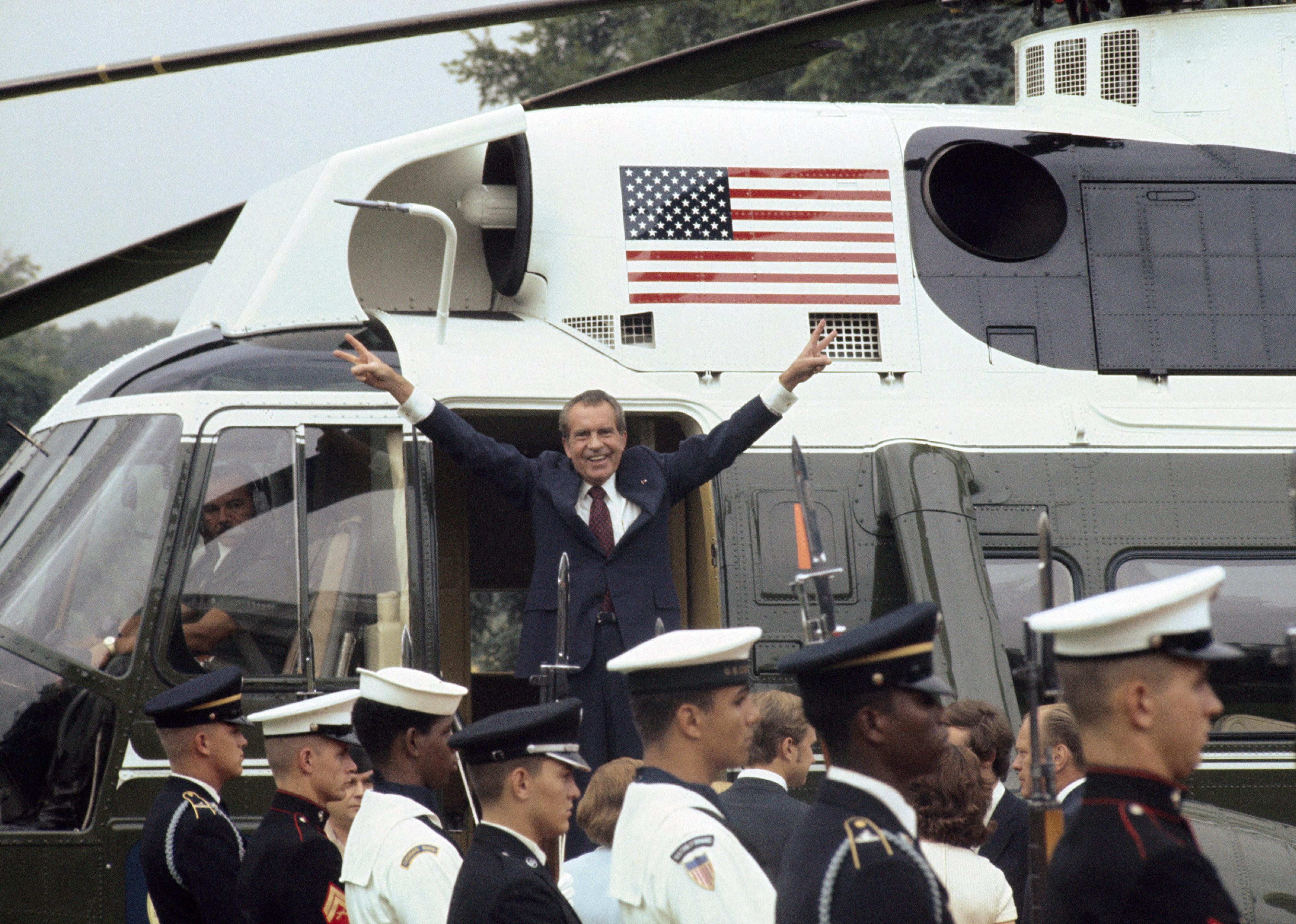
#12. Richard Nixon (1974)
- Approval: 24%
- Disapproval: 66%
- No opinion: 10%
President Nixon's first term began with high approval ratings before plummeting at the start of his second term. Nixon's popularity continued to decline with the leak of the Pentagon Papers, documents proving previous administrations intentionally misled the American public about the failing Vietnam war. Midway through his second term, an investigation into a break-in at the Democratic National Committee headquarters in the Watergate Hotel exposed multiple cases of abuse of power by the Nixon administration. Soon after, Nixon resigned from office in disgrace. The Watergate scandal and Nixon's subsequent political downfall have been chronicled in the book and Oscar-winning film "All the President's Men."
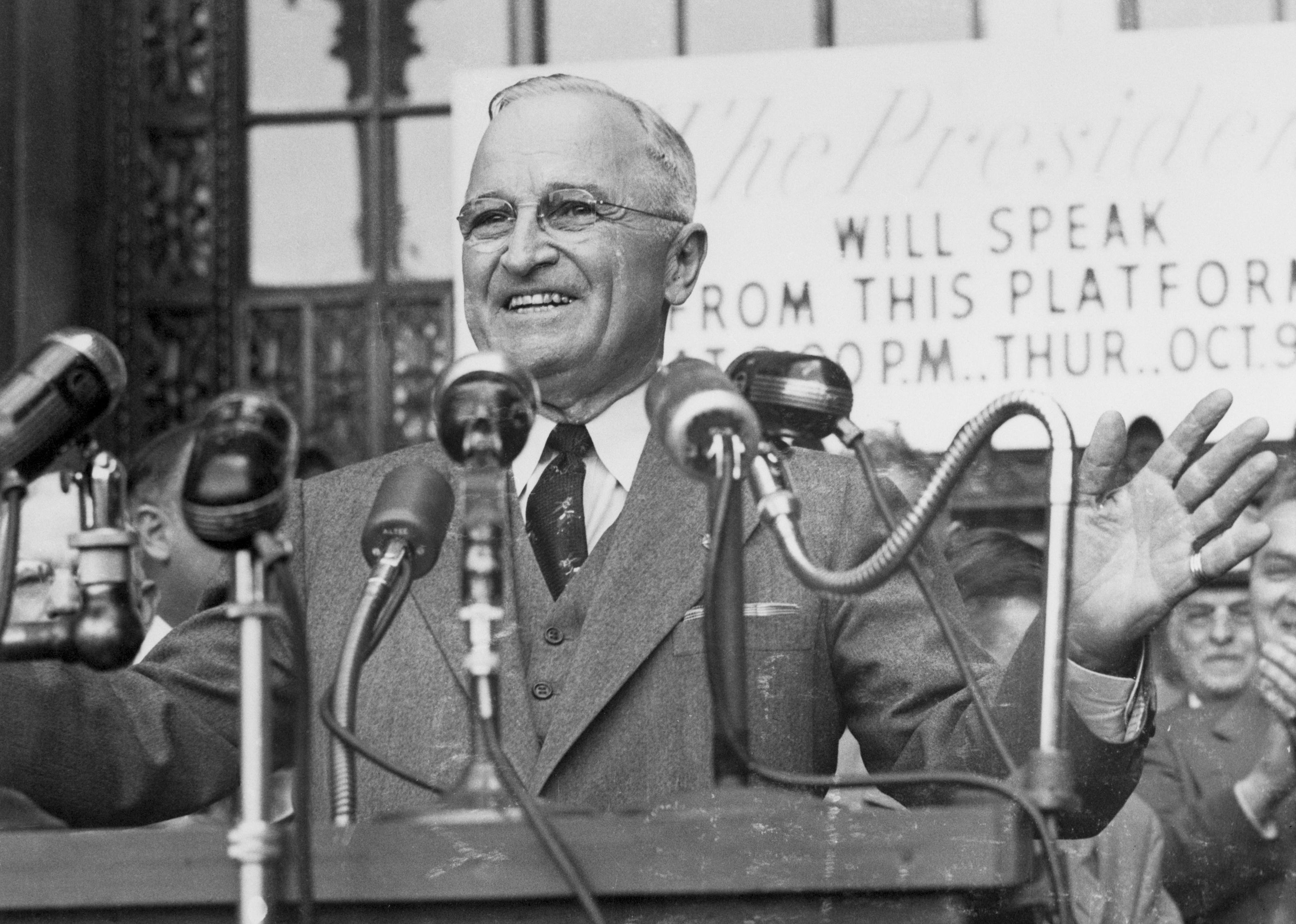
#11. Harry S. Truman (1952)
- Approval: 32%
- Disapproval: 56%
- No opinion: 12%
President Truman's handling of the Korean War, Senator Joseph McCarthy's anti-communist witch hunts—which began on Truman's watch—and accusations of corruption within the administration, all contributed to the 33rd president leaving office with among the lowest approval ratings of any president in modern history.
In 1950, President Truman ordered U.S. air and naval forces to democratic South Korea to aid in repelling an imminent invasion by North Korean forces. When negotiations between the two sides reached a stalemate, American support for a war without end plummeted. Diminishing support for the war mirrored a loss of support for Truman himself and predicted Dwight D. Eisenhower's election in 1952. Truman was also widely criticized as being too slow and apathetic in his response to Senator McCarthy's communist fearmongering.
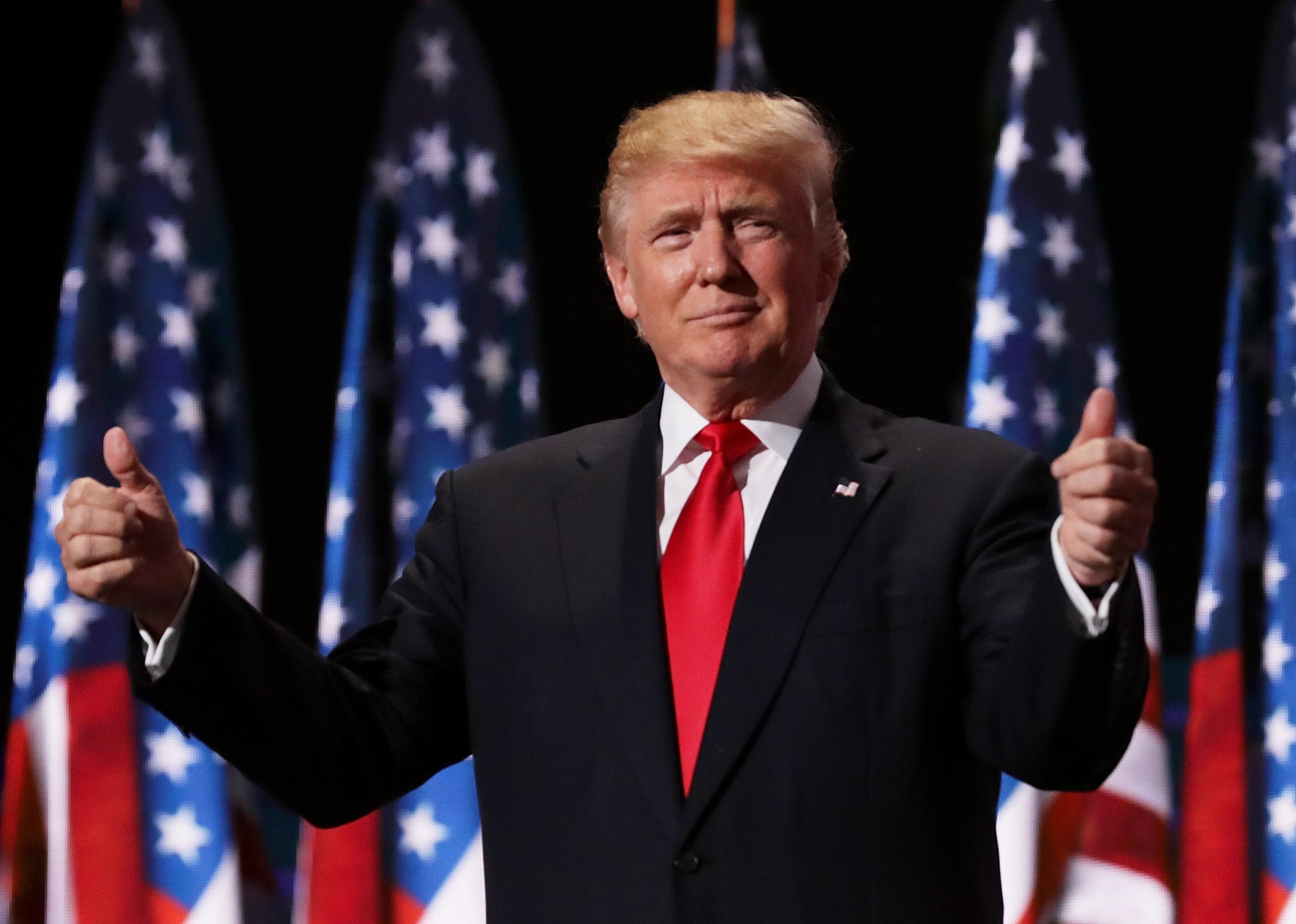
#10. Donald Trump (2021)
- Approval: 34%
- Disapproval: 62%
- No opinion: 4%
President Donald Trump is the first president in history to be impeached twice by the House of Representatives. He was first impeached for promising military aid to Ukraine in exchange for political favors; the second impeachment came after the Jan. 6 insurrection at the U.S. Capitol. The Republican-led Senate acquitted him both times.
President Trump's failed reelection campaign openly embraced political vitriol and conspiracy theories, pandering to his core base of Republican constituents. Trump is the first president in over 150 years who refused to attend his predecessor's inauguration. He is also the first former president to be tried in criminal court, as of April 2024.
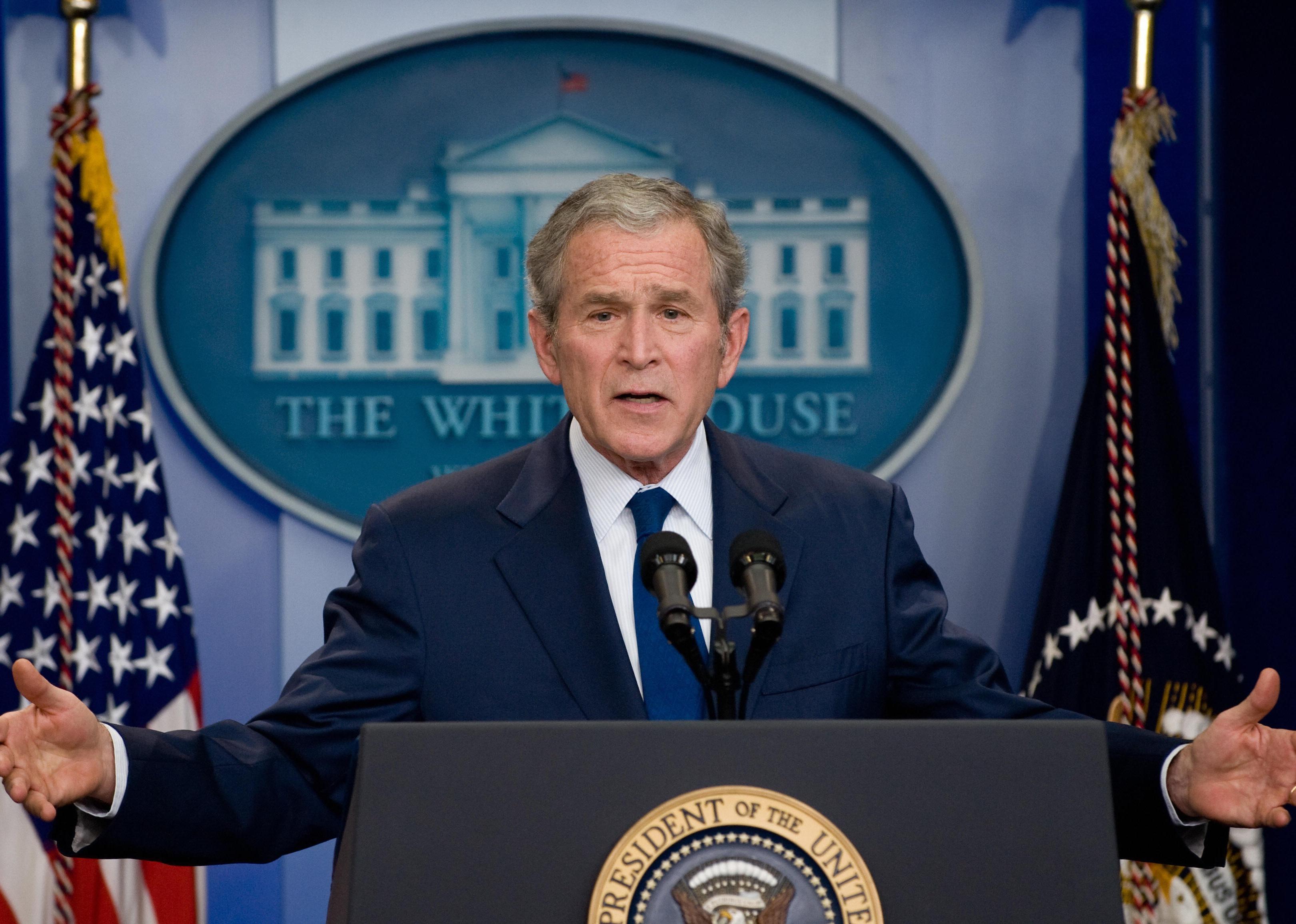
#9. George W. Bush (2009)
- Approval: 34%
- Disapproval: 61%
- No opinion: 5%
President George W. Bush's approval ratings rose to a historic high of 86% shortly after the 9/11 terror attacks during his first year in office. Initially, he received broad support for putting American troops in Iraq to engage in the war on terror. The public perception of the war changed, however, as more Americans continued to die with no end to the conflict in sight. Bush received further criticism when intelligence reports released to the public contradicted his statements about Iraq stockpiling weapons of mass destruction, something the administration cited as justification for the U.S. to invade the Middle Eastern nation in the first place.
Bush's approval ratings declined after his disastrous handling of Hurricane Katrina. It was his economic policy decisions, however, leading to the 2008 financial collapse that sank the nation into the Great Recession, that cemented his unpopularity with the American public.
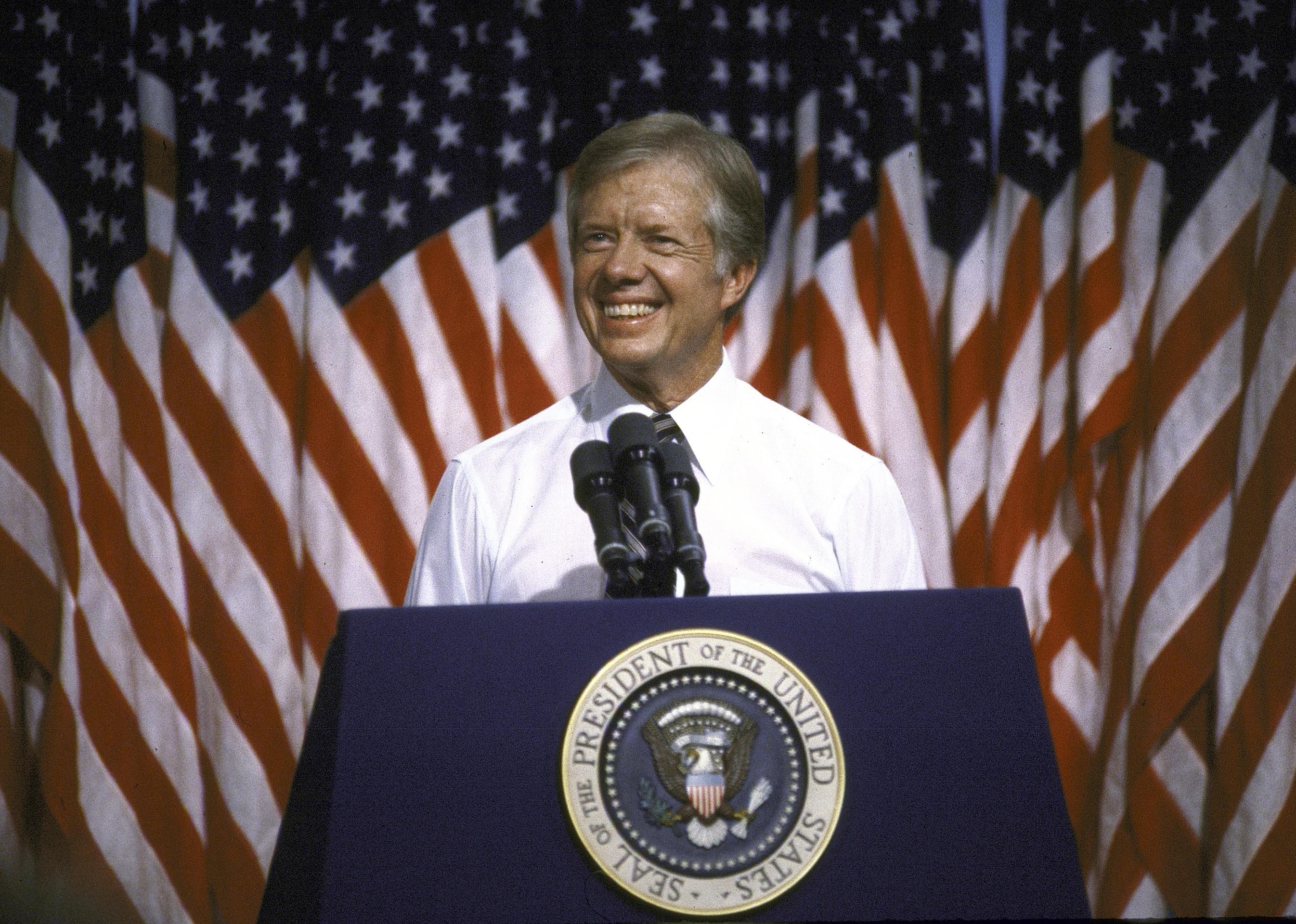
#8. Jimmy Carter (1980)
- Approval: 34%
- Disapproval: 55%
- No opinion: 11%
President Carter ran for office as a Washington outsider and entered office with a 74% approval rating. During his first year in office, Carter created the Department of Energy in response to the country's energy crisis and U.S. dependence on foreign oil. Gas shortages, high interest rates, and high unemployment took a toll on Carter's popularity. He also raised refugee caps in order to allow more Southeast Asian refugees to enter the U.S., a choice that was unpopular among many Americans at the time. In 1979, Iranian students took over the U.S. Embassy in Tehran, holding 52 Americans hostage. Carter failed to secure the release of the hostages after an unsuccessful rescue attempt. The hostages were released soon after Carter left office.
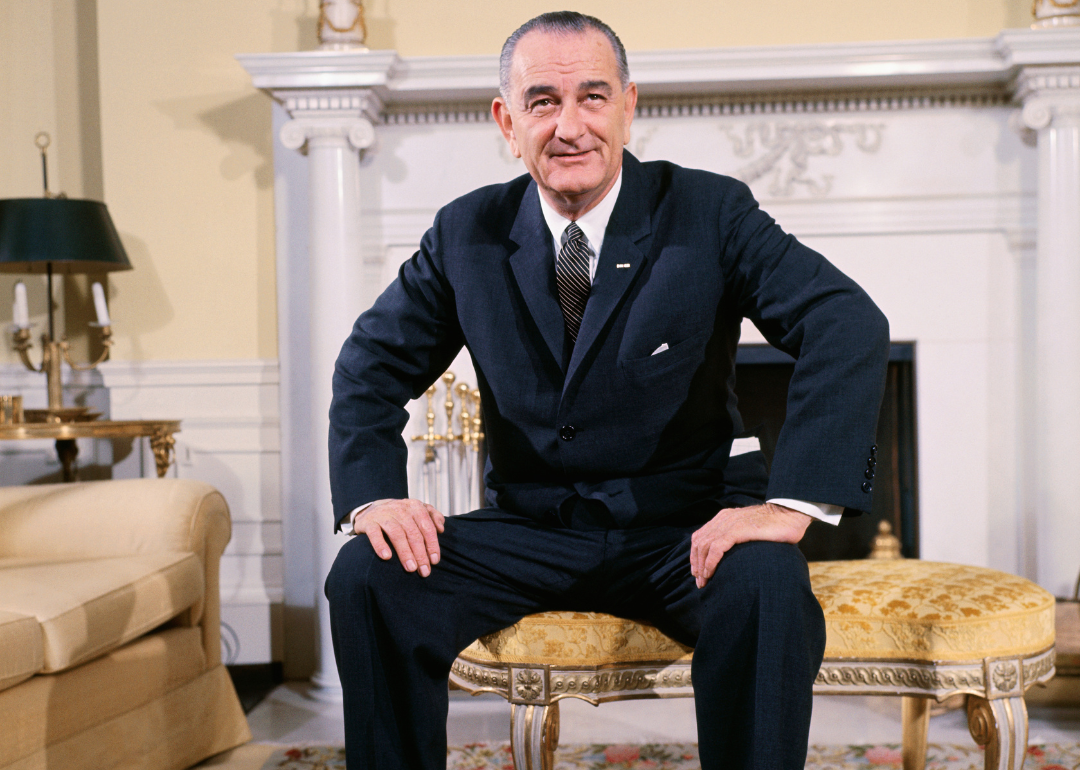
#7. Lyndon B. Johnson (1969)
- Approval: 49%
- Disapproval: 37%
- No opinion: 14%
The country largely supported Lyndon Johnson when he unexpectedly became president after the assassination of John F. Kennedy. American involvement in Vietnam began before Johnson became president, but the U.S. did not officially declare war until 1964, well into Johnson's administration, after the North Vietnamese attacked two U.S. destroyers. Even as Johnson publicly reassured Americans of U.S. success in Vietnam, media coverage told a different story, and support at home continued to deteriorate.
Johnson was a proponent of racial equality—signing both the Civil Rights Act and Voting Rights Act into law—but after the assassination of MLK, riots broke out across the country. The backlash among white Americans who opposed civil rights further tanked Johnson's popularity.
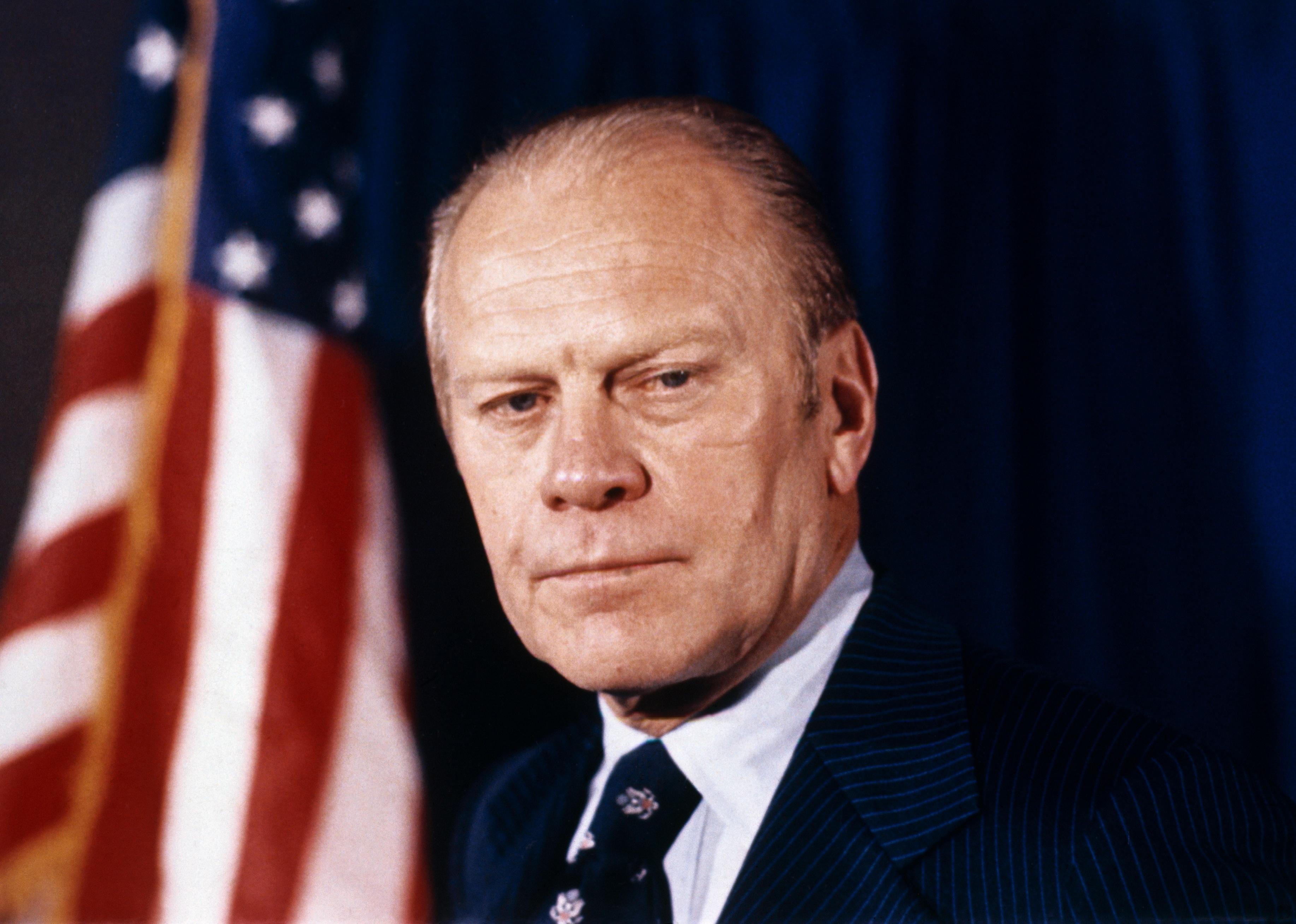
#6. Gerald Ford (1976)
- Approval: 53%
- Disapproval: 32%
- No opinion: 15%
President Gerald Ford assumed office with high approval ratings after the resignation of President Nixon. However, when he pardoned Nixon for participating in the Watergate scandal, Ford's approval ratings plummeted and never fully recovered. During Ford's presidency, the U.S. economy continued to suffer, and many Americans blamed him for the disastrous U.S. pullout from Vietnam. He was the subject of two failed assassination attempts during his term. Ford ultimately lost his second term to Jimmy Carter. Polling showed that 50% of Americans said they would remember Ford as an average president.
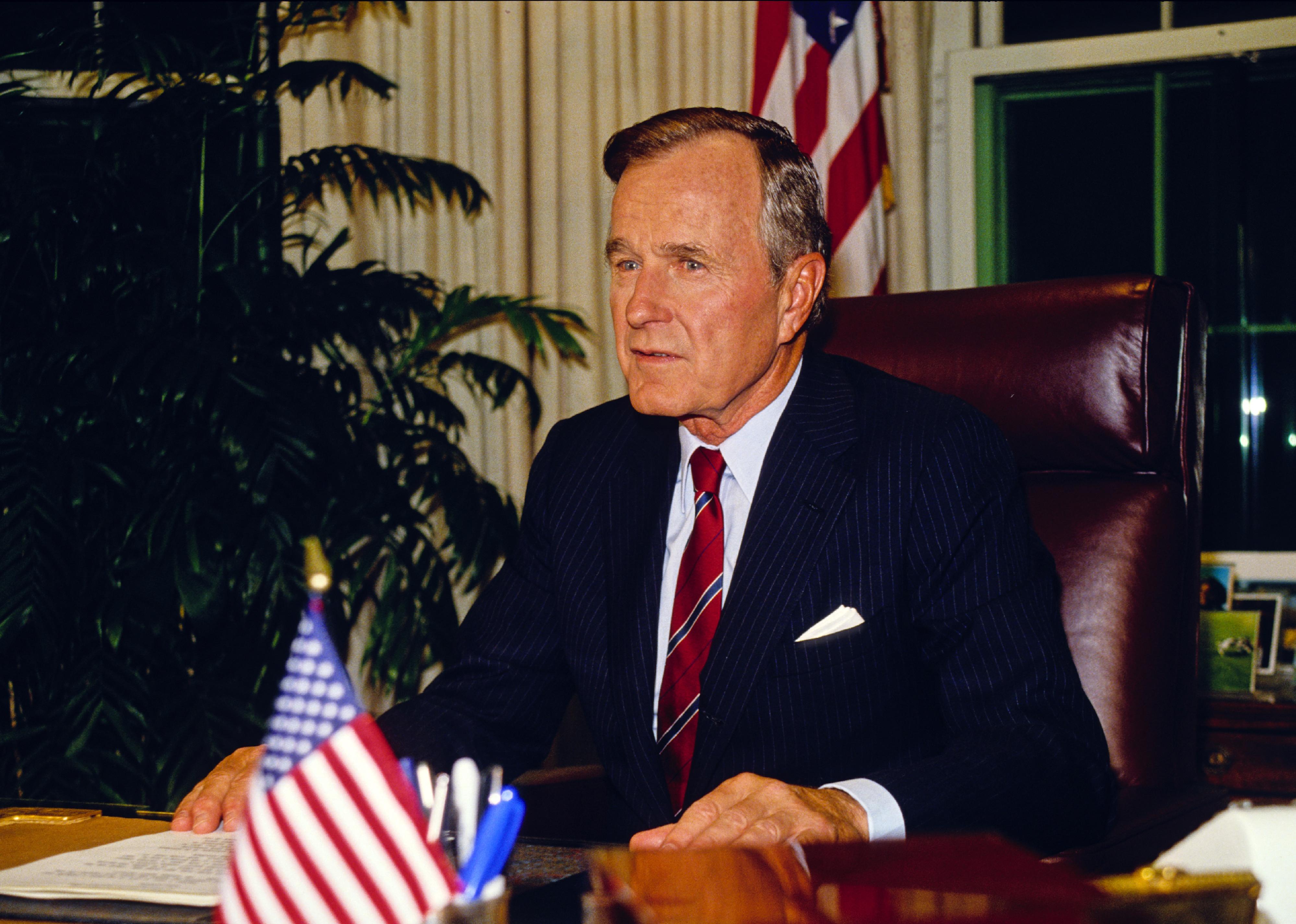
#5. George Bush (1993)
- Approval: 56%
- Disapproval: 37%
- No opinion: 7%
George H.W. Bush entered office amid a rapidly changing world with the fall of the Berlin Wall and the end of the Soviet Union. Bush successfully navigated the first post-Cold War international crisis after Saddam Hussein invaded Kuwait. Bush's approval ratings soared after the success of Operation Desert Storm.
After the military victory, Bush's popularity dropped due mainly to a failing economy, high unemployment, and high numbers of Americans living in poverty. Bush lost his reelection bid in 1992 to Bill Clinton, with many citing his failure to keep his "read my lips" campaign promise (which pledged no new taxes) as a significant contributor to his defeat. Despite the loss of his campaign, his approval rating by the end of his presidency had recovered somewhat.
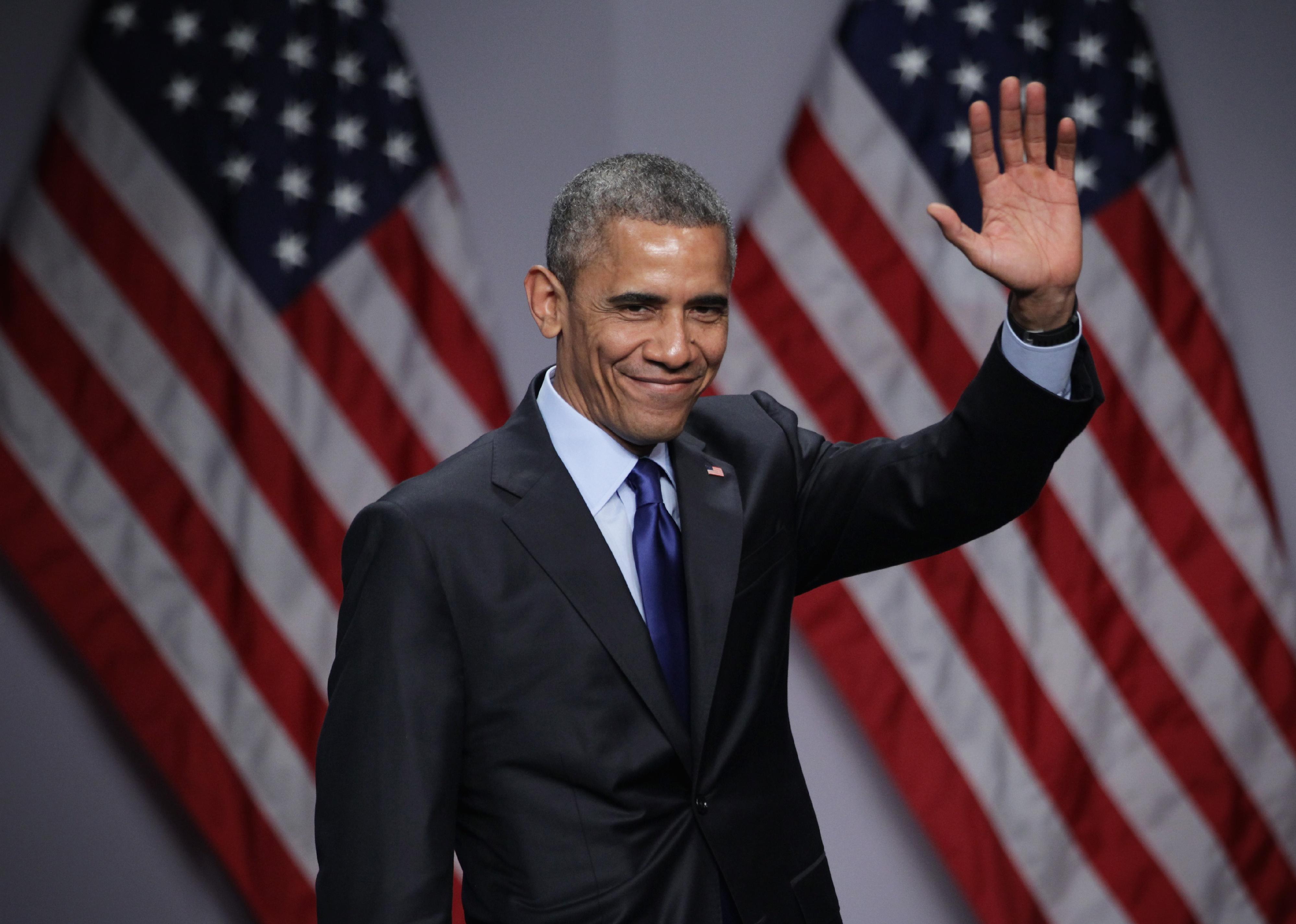
#4. Barack Obama (2017)
- Approval: 59%
- Disapproval: 37%
- No opinion: 4%
President Obama took office on the heels of the worst economic crisis in the U.S. since the Great Depression. However, when Obama left office, more than half of Americans polled thought the economy was in excellent health. Partisanship between Democrats and Republicans—and the stark political divisiveness of incoming President Trump—affected Obama's approval at the end of his term. However, just over 60% of independent voters surveyed in one Washington Post/ABC News poll were in favor of Obama when he left office. Even more favorable than Obama's approval ratings at the end of his second term were Michelle Obama's, which were around 72% at the end of her time in the White House.
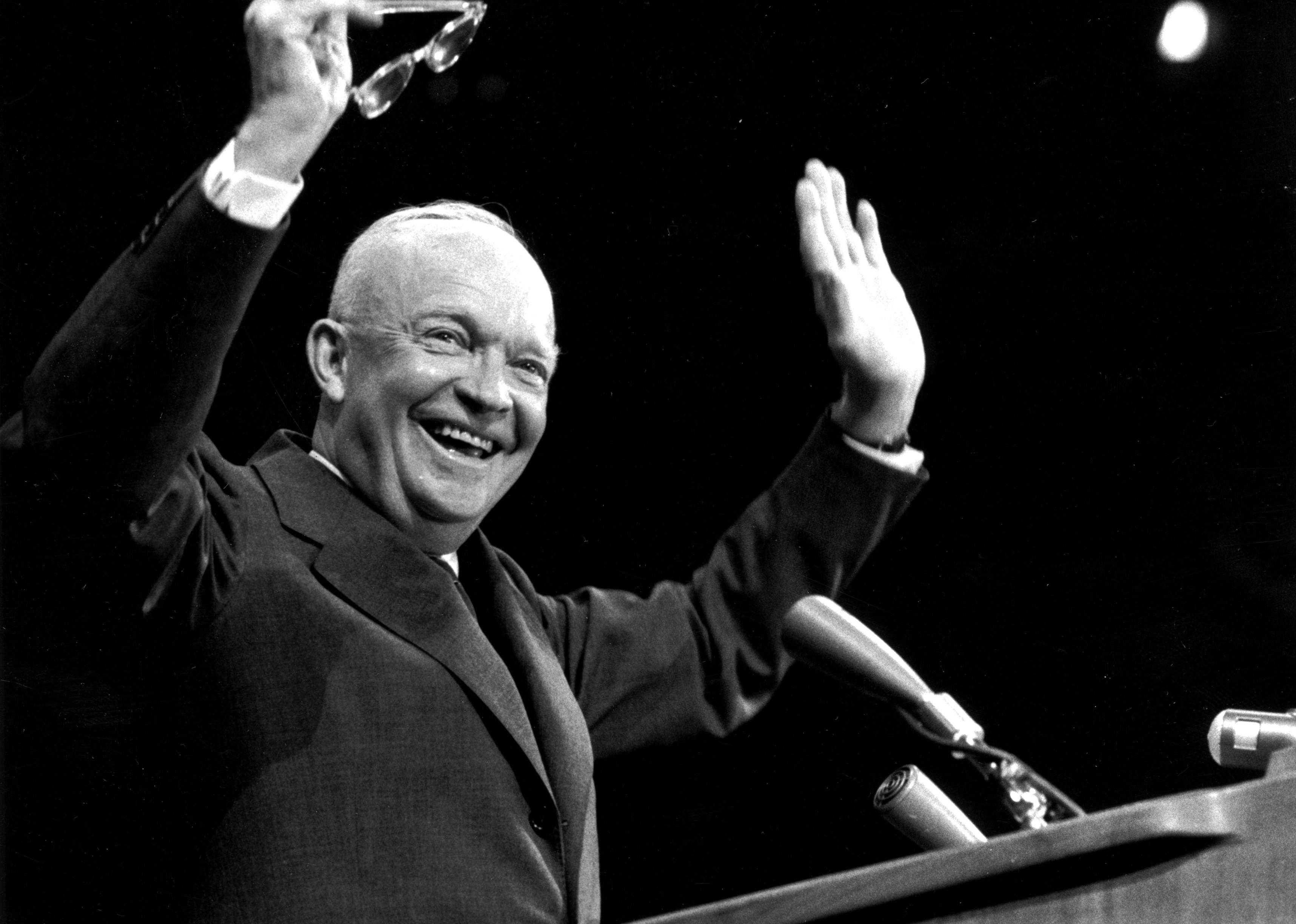
#3. Dwight D. Eisenhower (1960)
- Approval: 59%
- Disapproval: 28%
- No opinion: 13%
Eisenhower began his presidency with overwhelming support after helping lead the country to an Allied victory in World War II, during which he served as a general in the army. During his presidency, Eisenhower expanded Social Security and continued to implement Franklin Roosevelt's New Deal. In 1955, Eisenhower became the first U.S. president to hold an on-camera press conference, and he used the emerging media of television to communicate directly to the American people.
His approval ratings dipped at the start of his second term after he enforced the Supreme Court decision to desegregate schools in Brown v. Board of Education. "Ike" successfully prevented escalations with the Soviet Union, despite U.S. participation in the Korean War and the then-burgeoning conflict in Southeast Asia, and left office with the country at peace. He is remembered as a stabilizing and moderate president, though critics point to his policies as maintaining the status quo.
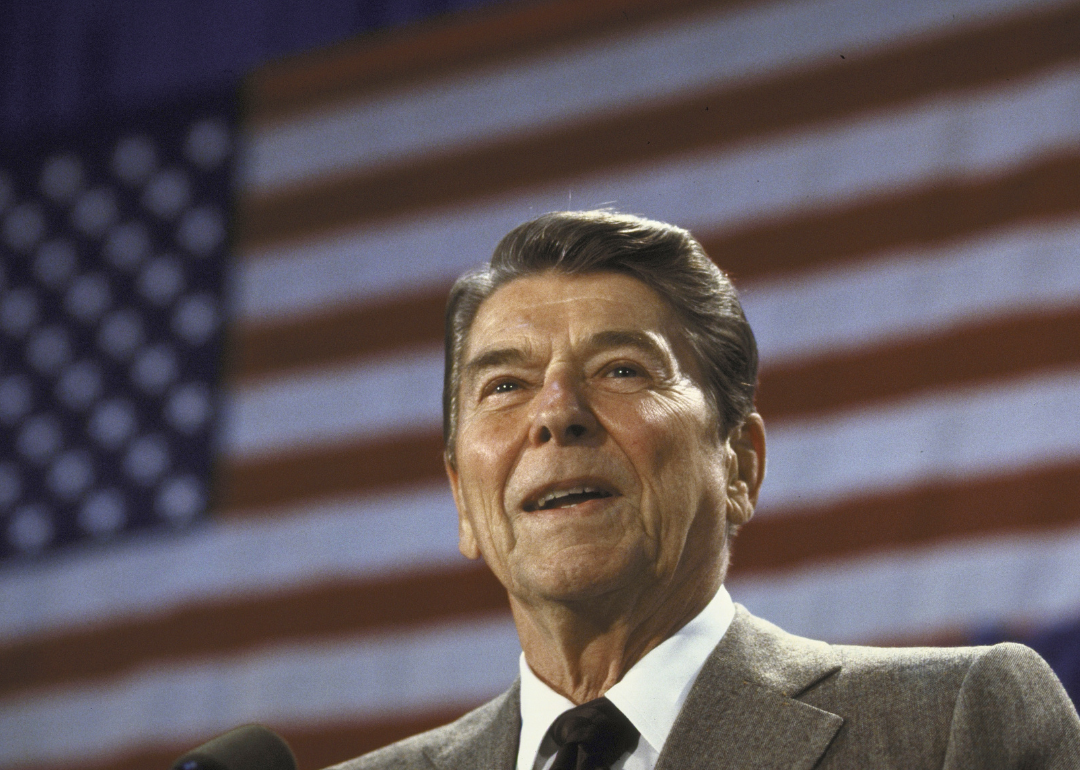
#2. Ronald Reagan (1988)
- Approval: 63%
- Disapproval: 29%
- No opinion: 8%
President Reagan's popularity skyrocketed after surviving an assassination attempt 69 days into his presidency. Americans were impressed with Reagan's calmness and wit. Reagan famously remarked to his wife, First Lady Nancy Reagan, "Honey, I forgot to duck." Reagan's legislative efforts aimed at curbing the inflation and unemployment that plagued the Carter administration found strong Congressional support and effectively stimulated the economy.
Reagan also oversaw the tail end of the Cold War and the collapse of the Soviet Bloc. The U.S. experienced the longest peacetime without depression or recession during his two terms in office. While his approval ratings dipped when the Iran-Contra Affair came to light, by the time he left office most Americans had forgiven him, and his approval ratings remain one of the highest for an exiting president. Despite higher approval ratings at the end of his term, many Americans have retrospectively criticized his administration's failure to adequately respond to the AIDS epidemic, as the president never even publicly mentioned the disease until years after the crisis began. His economic policies, which employed the "trickle-down" theory, have also since been criticized for widening income inequality.
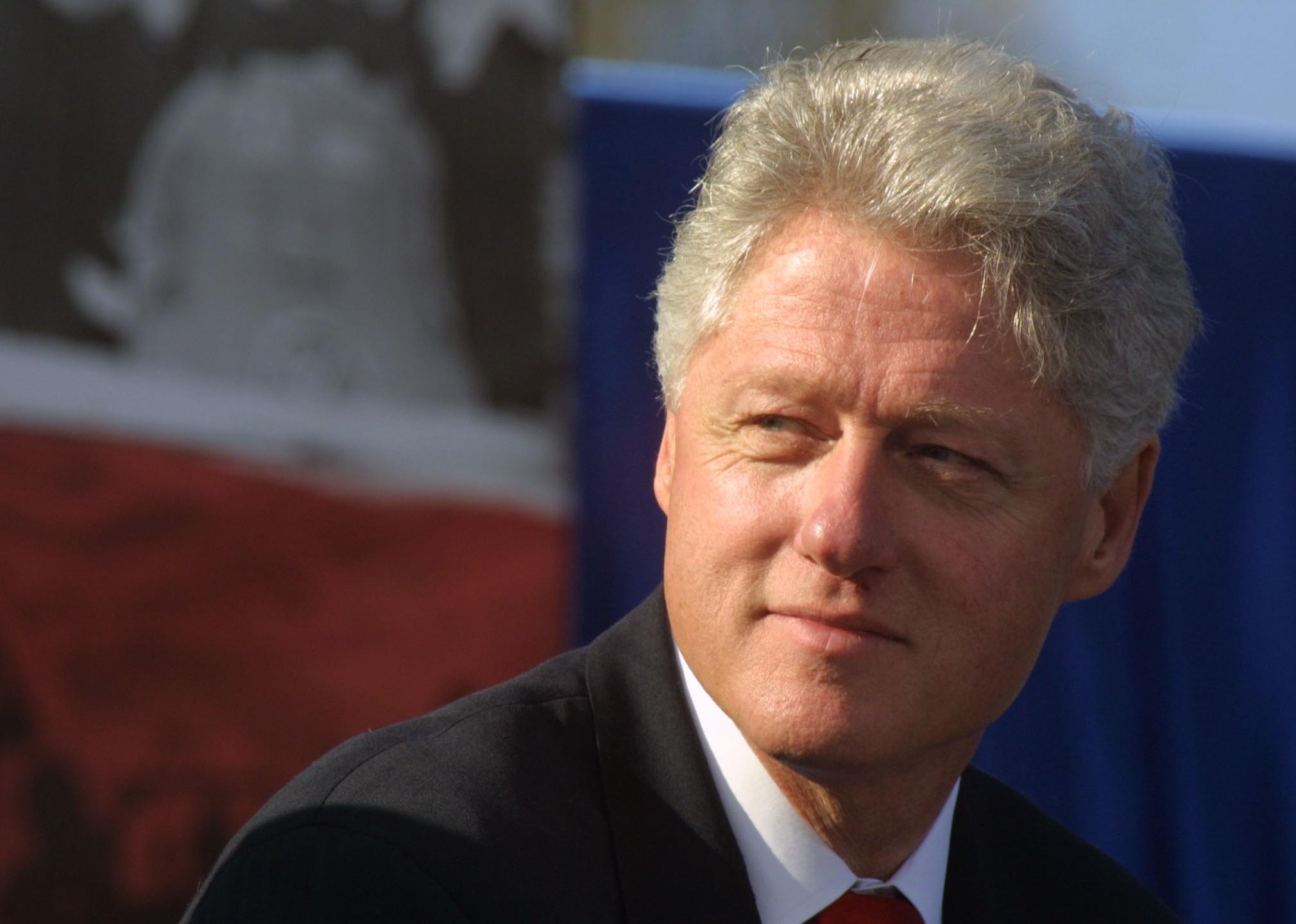
#1. William J. Clinton (2001)
- Approval: 66%
- Disapproval: 29%
- No opinion: 5%
President Clinton entered office with high approval ratings after a heated three-way election victory. He remained more or less popular throughout his two terms in office. Following the Monica Lewinsky scandal and the release of the Starr Report midway through his second term, Clinton's approval ratings were remarkably stable, even after the House of Representatives voted to impeach him for lying to Congress. His approval ratings continued to remain high throughout the investigation and his subsequent acquittal by the Senate.
Clinton oversaw the elimination of the federal deficit and signed into law the Public Safety and Recreational Firearms Use Protection Act, typically referred to as the National Assault Weapons Ban, in 1994. When Clinton left office, he enjoyed the highest approval ratings of any outgoing president over the last eight decades. In recent years, his legacy has been scrutinized by critics of his 1994 crime bill as a major contributor to the U.S.'s mass incarceration crisis.



